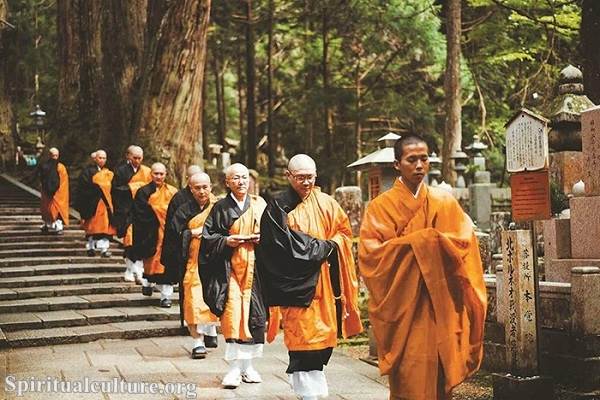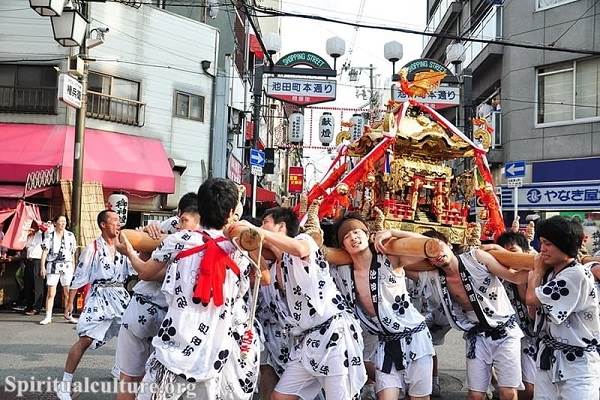Japan has a long cultural exchange with other parts of Asia, and Western countries have also influenced its culture more recently.
Japanese culture is known for its respect for tradition and its emphasis on aesthetics. The country has a strong tradition of crafts and arts, including pottery, lacquerware, and textiles. Japan is also known for its distinctive architecture, which includes wooden buildings with sliding doors, tatami mats, and shoji screens.

Japanese food is an important part of the country’s culture and is known for its emphasis on fresh ingredients, presentation, and seasonal flavors. Sushi, tempura, and ramen are some of the most well-known Japanese dishes, but there are many other types of food to try in Japan, such as udon noodles, soba noodles, and tonkatsu (breaded and fried pork cutlets).

Japanese culture is also deeply influenced by the country’s indigenous religions, Shinto and Buddhism. Shinto, the indigenous religion of Japan, is a polytheistic faith that centers on the worship of kami, or deities, who are believed to inhabit natural objects and phenomena. Buddhism, which was introduced to Japan from China in the 6th century, is a religion that emphasizes the importance of attaining enlightenment through meditation and the practice of moral virtues. Both religions play a significant role in Japanese culture, and many Japanese people follow both religions.

Japanese culture is also known for its strong sense of community and respect for authority. The country has a collectivist society in which group harmony and the community’s needs are valued above individual desires. Respect for authority is also an important part of Japanese culture, and Japanese people are often expected to show respect to their elders, bosses, and other authority figures.
Japanese culture is also known for its emphasis on the arts and the importance of aesthetics in daily life. The country has a long tradition of crafts, including pottery, lacquerware, and textiles, and is home to many famous museums and art galleries. Japan is also known for its distinctive architecture, which includes wooden buildings with sliding doors, tatami mats, and shoji screens.
Japanese culture is also known for its love of nature and the outdoors. The country has many beautiful gardens, parks, and natural areas popular with locals and tourists. In addition, Japanese culture has a strong tradition of outdoor activities, such as hiking, camping, and skiing.
Japanese culture is also known for its emphasis on etiquette and manners. Japanese people are generally very polite and considerate of others, and many etiquette rules are followed daily. For example, it is important to show respect to others, especially elders and authority figures, and to be mindful of one’s behavior in public.
Japanese culture is also known for its strong work ethic and discipline. The country has a long tradition of hard work and dedication, and many Japanese people take pride in their work and strive to do their best at all times.
Japanese culture is known for its love of technology and innovation. The country is home to many world-renowned technology companies and is known for its advanced technology and innovative products.
Japanese culture is also known for its unique festivals and celebrations. Some of the most well-known festivals in Japan include New Year’s Day, Cherry Blossom Season (Hanami), Golden Week (a series of four national holidays that take place in late April and early May), and Obon (a summer festival honoring ancestors).
Japanese culture is also known for its love of sports and physical activity. Some popular sports in Japan include baseball, soccer, sumo wrestling, and martial arts. The country is also home to many famous sports teams and athletes, and sports are a popular form of entertainment for many Japanese people.

Japanese culture is also known for its love of music and the arts. The country has a long tradition of music, including traditional instruments like the shamisen (a three-stringed instrument) and the koto (a stringed instrument played with a bow). Japanese music includes various genres, from traditional folk music to modern pop and rock. In addition, Japan is home to many famous theaters and performing arts centers, and the country has a strong tradition of theater, dance, and other performing arts.
Japanese culture is known for its love of literature and the written word. The country has a long tradition of literature, and Japanese writers and poets are highly respected in the literary world. Some well-known Japanese writers include Haruki Murakami, Kenzaburo Oe, and Yoko Ogawa.
Japanese culture generally is a rich and diverse blend of traditional and modern elements, emphasizing aesthetics, respect for tradition, community harmony, hard work, and art.





